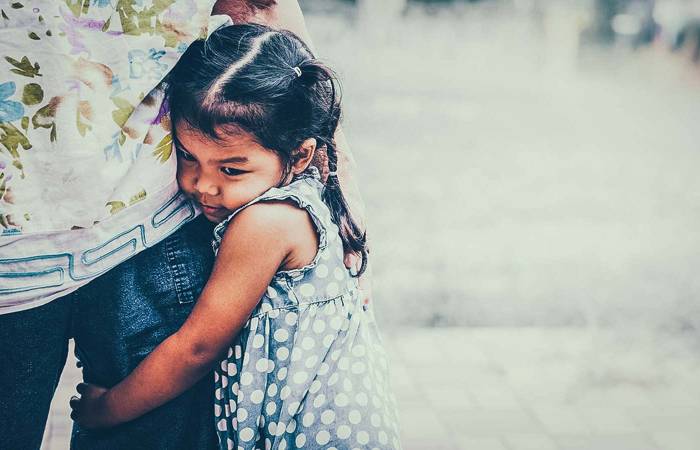Like what you see?
Sign up to receive more free parenting advice.
Thank you for subscribing to our newsletter!
Child Development

Credit: iStock.com/stock_colors
It’s not unusual for parents to feel anxious from time to time, when their child is unwell or troubled, however some parents are living with perpetual worry, unable to balance feelings of protectiveness with their child’s need for independence.
What are the signs you may have become overly anxious or fearful and what can you do to help yourself and your child?
Psychologist Dr Judith Locke, author of The Bonsai Child, suggests parents feeling anxious or fearful should think about the things they’re worrying about and ask themselves whether there’s a real chance of actual harm.
“They can ask themselves if it would be okay if their child just faced that tricky thing such as not winning the race, not having their lunch that day and learning they can cope and overcome the challenges, or feeling slightly uncomfortable for a moment,” Dr Locke says.
“If you find that you always have something you worry about to do with your child then it is likely you worry a bit too much.
“That unnecessary worry is likely to make your child worry unnecessarily too, particularly if you are voicing your fears, telling them that you worry about them or overprotecting them.”
Dr Locke believes parents should always be concerned for their child’s safety and making sure they’re protected from harm. But there are some definitions of harm that aren’t necessarily accurate.
Some parents might spend hours feeling anxious because their child is worried they won’t be in a class with their best friend, or that they haven’t been invited to a friend’s party or their child is upset that a favourite toy has gone missing.
“For example, a child losing a toy or not winning something – that isn’t harmful to them. But we’ve widened the definition of harm so parents are protecting their kids from things that will disappoint them,” Dr Locke says.
“The more you protect them from normal outcomes, such as not winning every game, then they’re not resilient enough to face the future and its ups and downs.”
I’ve found in my research that over protective parenting is associated with more anxiety in the child because you’re suggesting the world is a dangerous place. If you’re anxious and see the world as a dangerous place, you’re sending a message that the world is unsafe.Dr Judith Locke
Stay up to date with the latest news and articles from First Five Years
Thank you for subscribing to our newsletter!
For some parents the problem is larger than being fearful their child will be physically injured or emotionally hurt and simply unable to accept their role as guide not guard. They may be suffering from a genuine anxiety disorder that leaves them racked with concern that they cannot control.
For someone with an anxiety disorder, it can be very difficult to appear calm to your child when you are struggling to cope with your own feelings. A mental health professional can help you work through personalised stress management strategies.
“Anxiety is any worry that is greater than the situation demands. Now of course, every time you worry you think that the situation demands that. But it’s really good to think about the thing you are worrying about and whether it is a real chance of actual harm,” Dr Locke says.
Dr Locke says when your child sees you being worried and anxious, then they will worry as well.
“I’ve found in my research that over protective parenting is associated with more anxiety in the child because you’re suggesting the world is a dangerous place. If you’re anxious and see the world as a dangerous place, you’re sending a message that the world is unsafe,” Dr Locke says.
“There are several ways parents can reassure themselves. Ask yourself, ‘What am I really worried about?’. If you’re worried about your child’s success and happiness, then you might be over reacting.
“Also ask, ‘What’s the worst that can happen and what is the likelihood that will happen?’. Be realistic about the chances. Aliens could abduct your child sure - but it’s unlikely and, if it is unlikely, then worry is wasted time you could be using more usefully.”
Dr Locke says it’s a good idea to spend as much time as you can with other people with similar aged children. That means you’ll be able to observe the other parents and what they allow their children to do.
“It’s good for your child to be with others. There’s safety in numbers and sometimes the fact that other parents let their children do certain things may help you become more confident to allow your child to do that activity or face that challenge too,” Dr Locke says.







